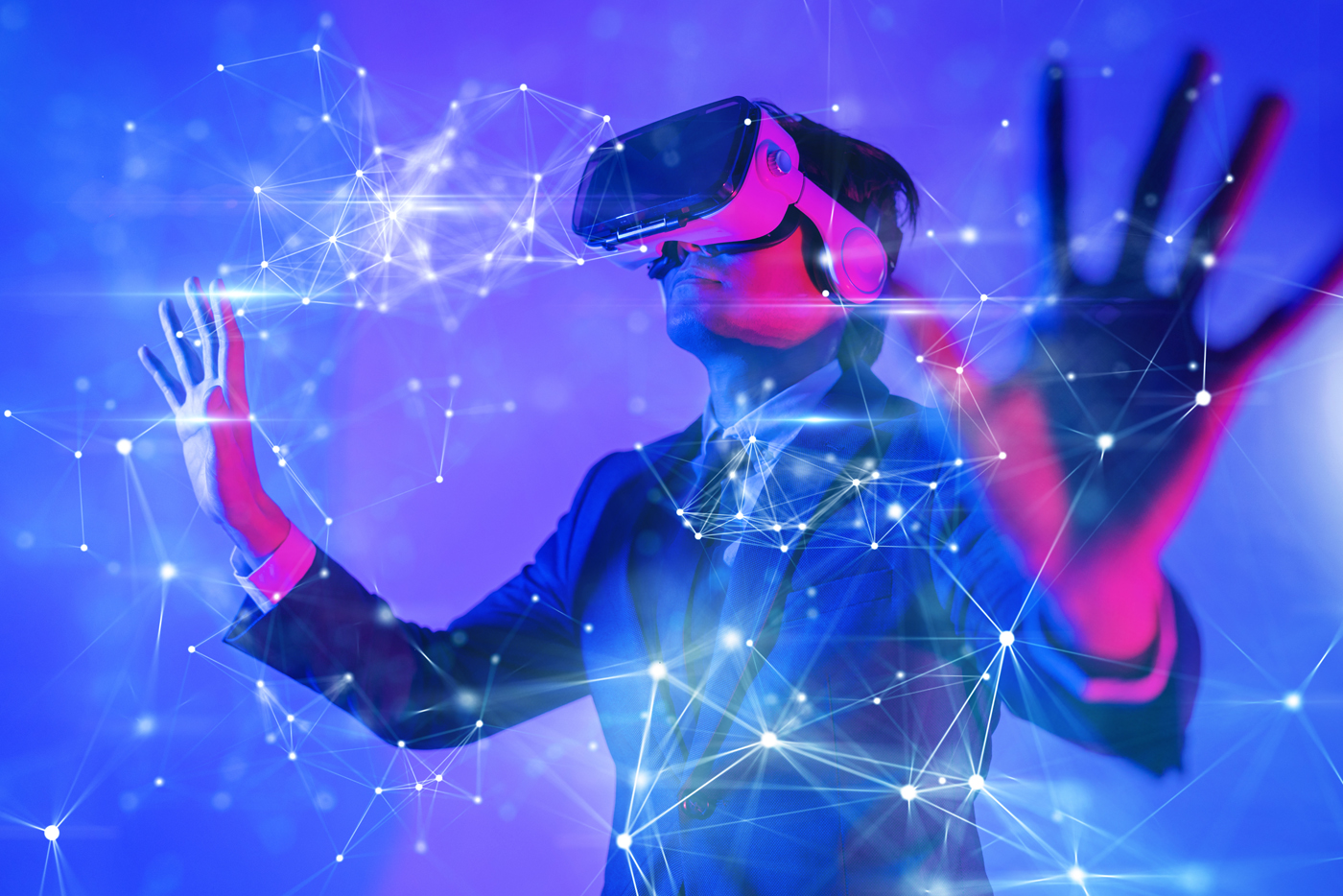How Close Are We To The Metaverse?
29 March 2022
Conversations about the metaverse are everywhere these days. But how far away is a true metaverse experience?

One of the questions I frequently get asked is, “How close are we to a metaverse?”
My answer to this question depends on how you define “metaverse.”
Some people believe the only definition of the metaverse is one huge integrated virtual world, where you can move from point to point in a seamless virtual experience using a single avatar.
I use a slightly different working definition. For me, the metaverse is a digital world that is becoming increasingly immersive. It is an evolution we are experiencing that started many, many years ago, and that evolution is simply accelerating.
Where We Stand Now: The Existing Multiverse
We already have a number of diverse experiences available to us in a multiverse, on different platforms, created by a number of innovative companies.
A few quick examples:
You can simply Google a dinosaur and look at it in your living room using augmented reality.
In Fortnite, you can play the game using an avatar and watch concerts by amazing artists within the platform in a joint immersive experience with thousands of other Fortnite community members.
We also have Facebook Horizons, a virtual world in which your avatar can join meetings and connect socially with other players.
Farmers are even using virtual reality to keep their cows happy. In some places in the world, dairy farmers have cows that don’t get to live in grassy green meadows that make them feel happy – but with virtual reality goggles, the cows will have an immersive meadow experience that makes them feel like they are in a greener place. This helps them create more milk.
Luxury companies like Gucci are using popup stores in the Roblox platform to sell virtual Gucci clothes that are only wearable digitally.
Nike bought RTFKT, a company that creates one-of-a-kind digital sneakers, artifacts, and other NFTs.
Companies like Nvidia have created an omniverse digital co-working environment that goes way beyond typical Zoom conferencing calls. In Nvidia co-working spaces, you can create interactive graphics, engineer projects, and build and render models.
And of course, Facebook recently changed its name to Meta, and the company is pouring billions of dollars into the development of the metaverse.
Innovations in Hardware
There are huge innovations in hardware, including new headsets and goggles, that will help speed up the evolution of the metaverse. I really like the HTC Flow glasses, which just look like sunglasses – but they provide VR capabilities. With 5G technology advancements, we will continue to see more untethered headsets that you can use when you’re on the move, without the constraints of Wi-Fi connections.
Apple is currently working on an AR/VR headset that could be released in 2022 or 2023. There are a lot of rumors about their VR projects, but many experts say these headsets will be standalone devices with high-powered processors that are on par with Apple computers. They will likely be able to operate independently of iPhones or Macs.
So if you're asking the question, "When will we be able to access the metaverse?" I believe the answer is "We already can!" We are currently in the midst of an XR evolution, and there are new innovations happening every day.
Related Articles
The Third Wave Of AI Is Here: Why Agentic AI Will Transform The Way We Work
The chess pieces of artificial intelligence are being dramatically rearranged. While previous iterations of AI focused on making predictions or generating content, we're now witnessing the emergence of something far more sophisticated: AI agents that can independently perform complex tasks and make decisions.[...]
How Generative AI Will Change Jobs In Cybersecurity
Ensuring robust cybersecurity measures are in place is more important than ever when it comes to protecting organizations and even governments and nations from digital threats.[...]
Sign up to Stay in Touch!
Bernard Marr is a world-renowned futurist, influencer and thought leader in the fields of business and technology, with a passion for using technology for the good of humanity.
He is a best-selling author of over 20 books, writes a regular column for Forbes and advises and coaches many of the world’s best-known organisations.
He has a combined following of 4 million people across his social media channels and newsletters and was ranked by LinkedIn as one of the top 5 business influencers in the world.
Bernard’s latest book is ‘Generative AI in Practice’.






Social Media